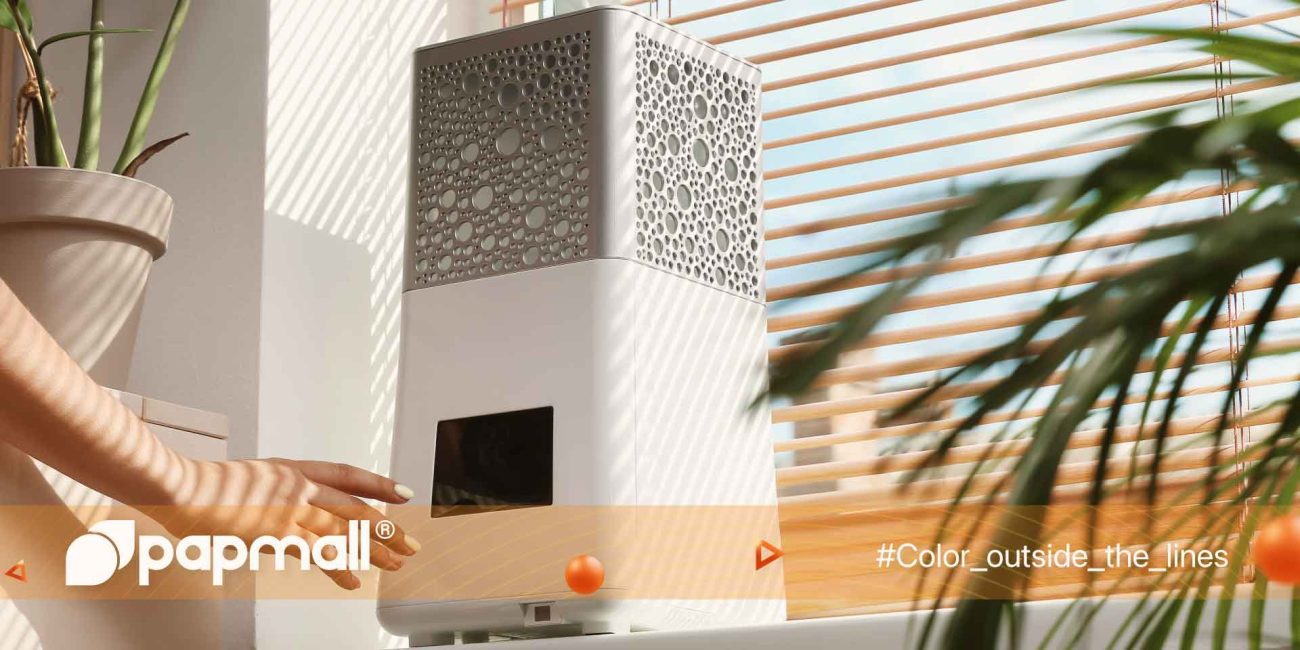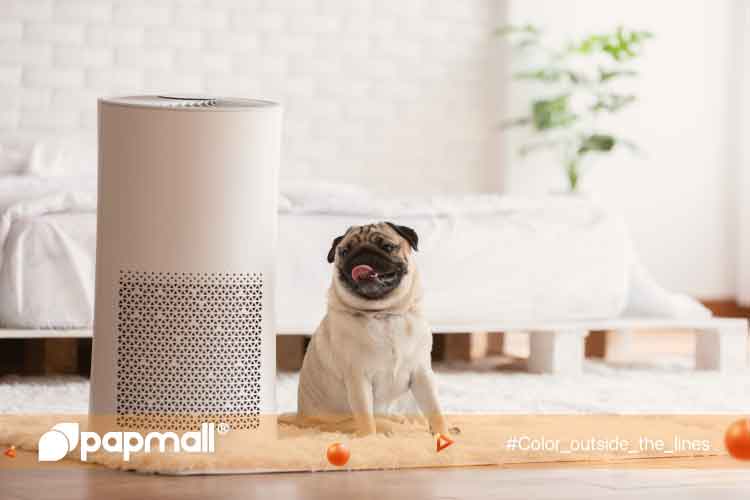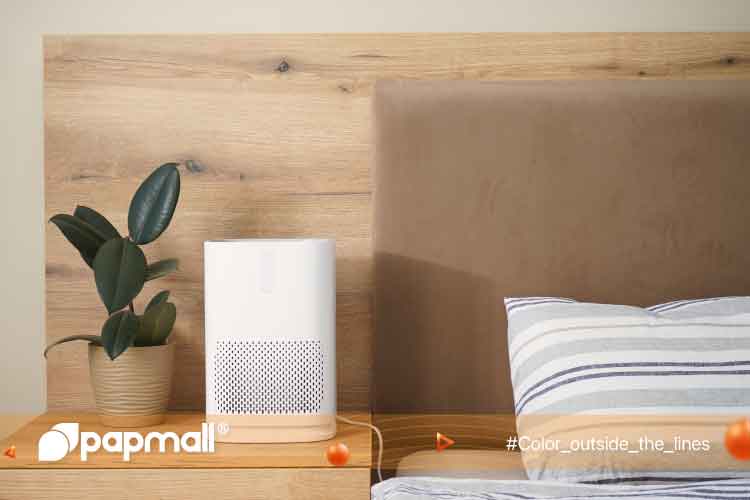What's inside?
A small but powerful enough desktop air purifier that can fit on your desk, dressing table, bedside shelf, the head of your bed, or something similar, is that the ideal air purifier you are looking for? Then there are several factors you should consider, such as the types of air filters, your purpose of use, your budget, and more. Let’s see what our expert recommendations are and create a healthier environment for your home or office. Begin with knowing the related types of air purifiers.
Choosing your best air purifiers based on your needs and types of place.
Types Of Air Purifiers For Small Places And Their Specific Features
There are tons of different air purifiers in the market, you don’t need to get to know all of them, just enough amount so that you can make the most appropriate decision.When it comes to air purifiers for small spaces, there are various types available, each with its specific features and advantages. Here are some common types of air purifiers suitable for small places, along with their specific features:
- HEPA Air Purifiers:
- Features: High-Efficiency Particulate Air (HEPA) filters are capable of capturing 99.97% of airborne particles as small as 0.3 microns.
- Advantages: Effective in removing dust, pollen, pet dander, mold spores, and other small particles from the air.
- Considerations: HEPA filters primarily target particles but may not be as effective against odors, gases, or volatile organic compounds (VOCs).
- Activated Carbon Air Purifiers:
- Features: These purifiers contain activated carbon filters that excel in adsorbing odors, gases, and VOCs.
- Advantages: Effective in reducing unpleasant smells, cooking odors, smoke, and chemicals.
- Considerations: Activated carbon filters are not as effective at capturing particulate matter like dust or pollen.
- Ionic Air Purifiers:
- Features: Ionic air purifiers use electrostatically charged plates or emitters to generate negative ions, which attach to airborne particles and cause them to settle.
- Advantages: Can help remove particles such as dust, pollen, and pet dander from the air.
- Considerations: Some ionic purifiers may produce ozone as a byproduct, which can be a concern for individuals with respiratory sensitivities.
- UV-C Light Air Purifiers:
- Features: UV-C light purifiers use ultraviolet (UV) light to kill or inactivate airborne pathogens like bacteria, viruses, and mold spores.
- Advantages: Effective in reducing the presence of specific microorganisms in the air.
- Considerations: UV-C light purifiers typically work in conjunction with other filtration technologies, such as HEPA filters, for comprehensive air cleaning.
- Ozone Generators:
- Features: Ozone generators intentionally produce ozone, a highly reactive gas, to neutralize odors and kill certain microorganisms.
- Advantages: Can help eliminate strong odors and disinfect the air.
- Considerations: Ozone generators should be used with caution as high levels of ozone can be harmful to humans and pets, and prolonged exposure should be avoided.
Your best air purifier will be the one that is powerful enough to refresh your whole space and fit in your room size as well as the coverage area.
It’s important to assess your specific needs and consider factors such as the type of pollutants you want to address (e.g., particulate matter, odors, microorganisms), any specific sensitivities or health concerns, and the noise level and energy consumption of the purifier. Additionally, ensure that the air purifier’s coverage area matches the size of your small space for optimal performance.Below are some factors you should consider when choosing an air purifier.
Best Air Purifiers Buying Guide For Small Places
When selecting an air purifier for small places, it’s important to consider several factors to ensure that you choose the best option for your needs. Here is a buying guide to help you make an informed decision:
- Room Size and Coverage Area: Determine the square footage of the room where you plan to use the air purifier. Check the purifier’s specifications to ensure that its recommended coverage area matches or exceeds the size of your room. For small places, compact or portable air purifiers are typically suitable.
- Filtration Technology: Look for air purifiers that utilize high-quality filtration technology. A combination of a true HEPA filter (or equivalent) and an activated carbon filter is often recommended for comprehensive air cleaning. The HEPA filter captures small particles like dust, pollen, and pet dander, while the activated carbon filter helps remove odors, gases, and VOCs.
- CADR (Clean Air Delivery Rate): The CADR indicates an air purifier’s effectiveness in removing airborne particles from the air. Look for an air purifier with a CADR rating suitable for your room size. The higher the CADR, the more efficient the purifier is at cleaning the air.
- Noise Level: Consider the noise level of the air purifier, especially if you plan to use it in a small space like a bedroom or office. Look for models with lower noise levels or adjustable fan speeds that allow you to customize the noise output according to your preference.
- Energy Efficiency: Opt for energy-efficient air purifiers that consume minimal electricity. Look for models with an ENERGY STAR certification, as they meet energy efficiency guidelines set by the Environmental Protection Agency (EPA).
- Filter Replacement and Maintenance: Check the cost and availability of replacement filters for the air purifier. Consider how often the filters need to be replaced and the overall maintenance requirements. Some models have indicator lights that signal when it’s time to replace the filters, which can be convenient.
- Additional Features: Consider any additional features that may enhance your experience. Examples include air quality sensors that automatically adjust fan speed based on detected pollutants, timers for scheduled operation, remote control, and smart home compatibility.
- Price and Warranty: Compare prices of different air purifiers while considering their features and performance. Check the manufacturer’s warranty to ensure adequate coverage and support in case of any issues.
- Customer Reviews and Ratings: Read customer reviews and ratings of the air purifiers you are considering. Pay attention to feedback regarding performance, durability, noise level, and customer support to gain insights from real users.
By considering these factors, you can select an air purifier that effectively cleans the air in your small space and meets your specific requirements and preferences.
It’s best to learn about as many air purifiers in the same market segment as possible to make the best decision for your healthy life.
Where To Buy The Air Purifier For Your Small Place
There are several options for purchasing air purifiers for your small place. Here are some popular places where you can buy air purifiers:
- Online Retailers: Websites such as Amazon, eBay, and Walmart offer a wide selection of air purifiers from various brands. Online shopping provides convenience, the ability to compare prices and features, and access to customer reviews.
- Manufacturer’s Website: Visit the official websites of air purifier manufacturers to explore their product offerings. Many manufacturers offer direct online sales, providing you with the advantage of purchasing directly from the source and accessing any exclusive deals or promotions they may have.
- Brick-and-Mortar Stores: Visit local appliance stores, electronics stores, or home improvement stores in your area. These stores often carry air purifiers, allowing you to see them in person, ask questions to store staff, and make a purchase immediately.
- Specialty Stores: Some specialty stores focus specifically on air-quality products and may offer a wide range of air purifiers. These stores often have knowledgeable staff who can provide guidance on selecting the right air purifier for your needs.
- Home Goods Stores: Stores like Bed Bath & Beyond, Target, and HomeGoods often have a selection of air purifiers available. You can check their physical stores or browse their websites to find options suitable for small spaces.
- Online Marketplaces: Besides dedicated online retailers, consider exploring online marketplaces like Best Buy, Newegg, and Costco. These platforms often have a variety of air purifiers available for purchase, including options for small spaces.
Remember to compare prices, read product descriptions and customer reviews, and consider the reputation and reliability of the seller before making a purchase. Additionally, check for any available warranties or return policies to ensure a smooth buying experience. Air purifiers are smart devices that help people a lot in creating a clean environment and improving their healthy life. However, finding an air purifier that perfectly fits into your small place is necessary to save your budget and make your space more lovely. Hope that the above tips on the “Best air purifier buying guide for small space” can give you enough suggestions for your final decision-making.



